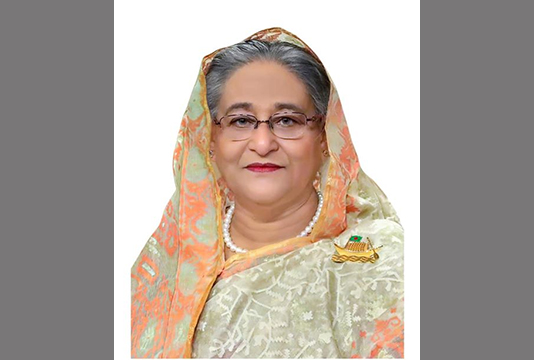
Md Shah Alam: Since 2017, Bangladesh has been the reluctant host to nearly 1 million Rohingya refugees scattered across various camps. However, the once-tentative situation within these camps has precipitously deteriorated. The expansion of armed group dominance and a palpable decline in humanitarian assistance have engendered a perilous environment, gravely compromising the safety and well-being of the displaced Rohingya populace. Originating from Myanmar, Rohingya refugees have fled persecution, particularly in the aftermath of the violent crackdown by Myanmar’s military on August 25, 2017, which drove approximately 655,000 to 700,000 Rohingya to seek sanctuary in Bangladesh. Over the preceding three decades, the influx of Rohingya into Bangladesh, fleeing the persistent specter of violence and discrimination in Myanmar, has swelled to encompass more than 300,000 individuals. Presently, an estimated 1.2 million Rohingya refugees eke out an existence in the Cox’s Bazar region, their numbers augmented by Rohingya from Hyderabad, India, who, beset by their own security challenges, have sought solace in Bangladesh.
At the 73rd UN General Assembly on September 28, 2018, Bangladesh’s Prime Minister Sheikh Hasina candidly disclosed that the nation played reluctant host to 1.1 million Rohingya refugees. The burgeoning refugee population has placed an unsustainable strain on the already precarious infrastructure of the overcrowded camps. Consequently, essential services, educational opportunities, sustenance, potable water, and sanitation facilities are acutely lacking. The vulnerable refugee population is further imperiled by the looming specter of natural calamities and the insidious spread of infectious diseases. In June 2018, the World Bank pledged nearly half a billion dollars in aid, earmarked for health, education, water and sanitation initiatives, disaster risk mitigation, and social protection programs for Rohingya refugees. However, on March 1, 2019, Bangladesh decisively announced its cessation of accepting new Rohingya refugees. A harrowing survey conducted in August 2018 documented a litany of atrocities, revealing that over 24,000 Rohingya met their demise, with 18,000 women and girls subjected to rape, 116,000 individuals enduring brutal beatings, and 36,000 victims falling prey to arson attacks since the commencement of the brutal “clearance operations” on August 25, 2017.
The Socio-Economic Impact on Locals and Its Implications on Commodity Prices:
A survey conducted between May and June 2018 unveiled significant economic ramifications on local communities attributable to the presence of Rohingya refugees. The refugees, grappling with their own plight, resorted to vending relief items such as rice, lentils, and cooking oil at prices significantly below prevailing market rates. This undercutting of prices adversely impacted local shopkeepers, precipitating a palpable downturn in their sales. Conversely, the burgeoning demand for essential commodities among the Rohingya, encompassing fish, meat, potatoes, vegetables, and firewood, triggered an inflationary spiral in prices within local markets. This dual phenomenon, characterized by depressedprices for select goods and an escalation in prices for others, has precipitated economic distress among host communities, exacerbating extant socio-economic fault lines.
Bangladesh continues to face significant challenges due to the prolonged presence of over one million Rohingya refugees, primarily in the Cox’s Bazar district. The situation is exacerbated by dwindling international aid, escalating violence within the camps, and severe climate risks.
Funding Shortfalls and Humanitarian Crisis:
International funding for Rohingya refugees has sharply declined, leading to cuts in essential services such as food aid and healthcare. The UN’s 2024 Joint Response Plan seeks $852.4 million to support both the refugees and the host communities, emphasizing the urgent need for sustained international assistance to prevent further deterioration of living conditions.
Increased Violence and Criminal Activities:
Violence in the refugee camps has intensified, with armed groups like the Rohingya Solidarity Organisation (RSO) and the Arakan Rohingya Salvation Army (ARSA) engaging in turf wars and criminal activities, including drug trafficking. The Bangladeshi security forces have struggled to control these groups, leading to higher incidents of killings, abductions, and general lawlessness within the camps.
Climate Vulnerability:
The Rohingya camps are situated in a region highly vulnerable to climate change, facing threats from cyclones, heavy rains, and landslides. Cyclone Mocha in 2023 highlighted the inadequate disaster preparedness in the camps, where the lack of proper cyclone shelters poses a significant risk to the refugees’ safety
Incidents of Murder & Abduction by Rohingya Militants:
The Manifestation of Violence by Rohingya Militants Against Bangladeshi Nationals: Incidents of Murder and Abduction.The Rohingya militant faction has embroiled itself in a spate of violent altercations, precipitating the tragic loss of life among the indigenous Bangladeshi populace. A litany of harrowing incidents underscores the volatility and insecurity wrought by Rohingya militants:
1. The slaying of Abdur Rashid, the office assistant at Hwaikong High School, by Rohingya militants in 2018.
Omar Faruk, the erstwhile president of Jadimura MR Government Primary School, met a grisly demise on August 22, 2019, at the hands of Rohingya militants in Jadimura, Hnila, Teknaf.
2. The abduction of two teenage girls, Lucky and Taslima, on October 20, 2019, by Rohingya militants from Shaplapur Union in Teknaf Upazila.
3. The ghastly murder of Akhtarullah on May 3, 2020, whose lifeless body was discovered buried at the foothills by Rohingya militants. Akhtarullah (24), hailing from the Minabazar area of Hwaikong Union, Teknaf, was one of the unfortunate victims. Additionally, Mohammad Shahed (25), son of Mohammad Hossain, and Mohammad Idris (30), son of the deceased Mohammad Kashem, were abducted individuals.
4. Mohsena Akter, the wife of Mohammad Ali, fell victim to a savage assault on August 14, 2021, perpetrated by Rohingya militants in Hwaikong, Teknaf. In Mohammad Ali’s absence, assailants wielding machetes and knives brutally terminated her life.
5. The kidnapping and subsequent murder of Mahmudul Karim on June 30, wherein Mahmudul Karim and Mizanur Rahman, local residents, were abducted by Rohingya militants from the Shamlapur Road in Hwaikong. While Mizanur Rahman was released post a ransom payment, Mahmudul Karim’s decomposed remains were discovered in the hills 42 days later, despite multiple ransom disbursements totaling 55,000 BDT via bKash.
6. The assassination of Sirajul Islam, the president of Teknaf Sadar Union Awami League, at the hands of Rohingya militants.
7. Omar Faruk, the erstwhile president of Jadimura MR Government Primary School, met a grisly demise on August 22, 2019, at the hands of Rohingya militants in Jadimura, Hnila, Teknaf.
These ghastly incidents underscore the severe security challenges posed by certain segments within the Rohingya refugee cohort, with grievous repercussions reverberating throughout the local Bangladeshi community. The pervasive climate of violence and insecurity portends significant tension, necessitating the urgent implementation of efficacious measures to safeguard both refugees and indigenous communities.
The Substantial Impact on Wages and Labor Dynamics:
The influx of Rohingya refugees has precipitated a downward spiral in wages, particularly within the agricultural and unskilled labor sectors. The proliferation of a large refugee labor force willing to toil for paltry wages has effectively supplanted local workers, compelling them to acquiesce to diminished remuneration. Consequently, host communities grapple with exacerbated socio-economic disparities, entailing profound ramifications for labor dynamics and livelihoods.
The Controversial Relocation Plans and Associated Security Concerns:
In 2015, the Bangladesh government mooted the contentious proposal of relocating Rohingya refugees to the remote island of Bhasan Char, nestled within the Bay of Bengal. Initially met with vehement opposition from human rights advocates and the UNHCR, the plan witnessed a resurgence following the inundation of an additional 65,000 Rohingya refugees between October and November 2016. Bhasan Char, an ephemeral island formed from silt deposition in the Meghna River in 2000, is inundated during high tide and lies approximately 30 kilometers from the nearest inhabited island, Hatiya. The Bangladesh Army has endeavored to transform the island into a habitable sanctuary for refugees, albeit concerns persist regarding its susceptibility to natural disasters and its accessibility.
Security Concerns for Bangladesh
Security concerns loom large within the confines of refugee camps, compounded by a paucity of adequate security measures. The resultant spike in incidents of violence and exploitation exacerbates the plight of Rohingya refugees, imperiling both their safety and the integrity of humanitarian operations
Recent Border Crisis:
Tensions in the Ghumdhum-Tamburu border area of Bangladesh’s Bandarban district have eased on Friday after continuous clashes for the past few days. However, after this conflict, the Arakan Army took control of Rakhine state on Tuesday.On the same day, the Arakan Army captured the Tong Pio patrol post in Mangdu town on the border with Bangladesh. In addition, clashes continued in Mrauk-U, Kyauktao, Minbia, Ramri, An and Maibon areas in northern Rakhine until Tuesday.As a result, military patrol posts along the Myanmar border with Bangladesh are now staffed by members of the Arakan Army, which is essentially an insurgent group.In such a situation, security analysts believe that the Bangladesh government has to take very careful steps in this area. They say that no action can be taken to send the wrong message to Myanmar’s junta government.
Repatriation Challenges:
Efforts to repatriate Rohingya refugees to Myanmar have been hindered by ongoing instability and systematic abuses in Rakhine State. Despite attempts to initiate pilot repatriation projects, the conditions in Myanmar remain unsafe, and most refugees are unwilling to return without guarantees of citizenship and security. The first attempt at Rohingya repatriation was scheduled for November 15, 2018, but none agreed to return. Recently, Myanmar sent a list of 3,540 individuals from 1,033 families for repatriation. However, the Rohingya have refused to go back, distributing leaflets with the following five demands:
1. Recognize the Rohingya as indigenous residents of Rakhine (Arakan) through legislation.
2. Grant citizenship and identity documents to the Rohingya living in Rakhine.
3. Allow the Rohingya to return to their villages and compensate for confiscated land.
4. Deploy UN peacekeepers alongside Rohingya police for their protection in Rakhine.
5. Prosecute perpetrators in the International Criminal Court instead of local Myanmar courts.
Despite ongoing efforts, these demands highlight the conditions necessary for their safe and dignified return.
Conclusion:
In the labyrinth of geopolitical maneuvering and diplomatic deadlock, the Rohingya refugees remain caught in a limbo of uncertainty and despair. As negotiations falter and promises fade, their yearning for a homeland grows ever more poignant against the backdrop of conflict and displacement. Yet, amidst the shadows of geopolitical complexities, their resilience stands as a beacon of hope, a testament to the enduring human spirit. The plight of the Rohingya serves as a stark reminder of the urgent need for a concerted international effort to address the underlying causes of their displacement and ensure their right to a dignified and peaceful return home. As the world watches, the fate of the Rohingya hangs in the balance, underscoring the imperative for compassion, solidarity, and meaningful action to bring about lasting peace and justice in the region.
Author: Md Shah Alam, Teacher at CU and Phd Researcher on Rohingya Refugees at IIUM, Malayasia. He can be reached at shah1alamdu@yahoo.com






